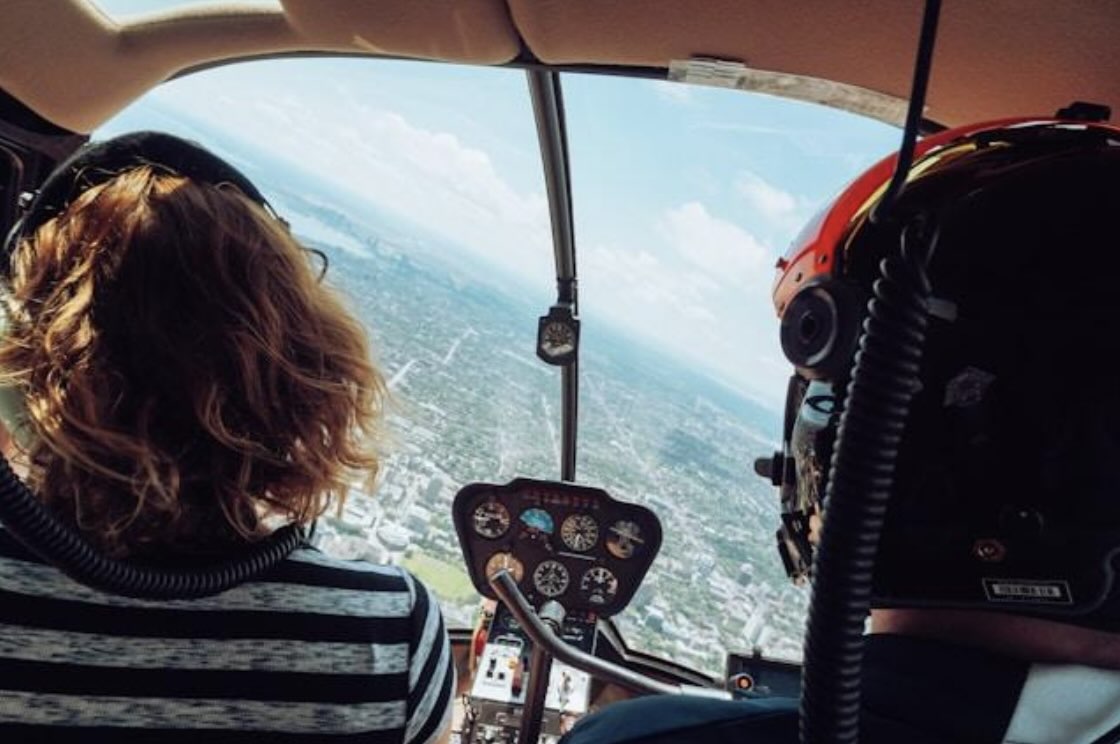Apr 13 (News On Japan) - Choosing a new career can be daunting, but if you've ever dreamed of soaring through the skies and showing tourists breathtaking landscapes from above, becoming a helicopter pilot might be worth considering.

This profession combines technical skills, quick decision-making, and the thrill of flight into a rewarding career. For those contemplating this path, here’s what you need to know about transitioning into the world of tourist helicopter piloting.
What Makes Helicopter Piloting Unique?
Helicopter pilots are unlike other aviators. They have the unique ability to hover, land in tight spaces, and maneuver vertically. In the tourism sector, this means flying over iconic landmarks, remote islands, or rugged mountain ranges—offering passengers experiences they’ll never forget.
Tourist helicopter pilots often work in dynamic environments. It’s not just about flying; it’s about ensuring safety while delivering an unforgettable experience. Imagine the thrill of flying over Japan's cherry blossoms in bloom or Hawaii's volcanic landscapes—each flight is a chance to create lasting memories for your passengers.
For those curious about diving deeper into aviation or learning more about the technical aspects of helicopter piloting, websites like davidorias.com offer valuable insights into the field. Whether you're exploring career options or simply fascinated by aviation, resources like this can help you better understand what it takes to succeed as a pilot.
Training and Certification: The Foundation of Your Career
Becoming a helicopter pilot starts with training. If you’re new to aviation, you’ll need to obtain a private pilot license (PPL-H) first. This requires at least 40 hours of flight time, including solo flights and instruction from an FAA-certified trainer. After that, most aspiring pilots pursue a commercial pilot license (CPL-H), which involves more rigorous requirements—150 hours of total flight time and specialized training in powered aircraft. Tourism-focused pilots often benefit from additional certifications or endorsements tailored to their operations. For example, flying in mountainous regions or over water may require specific training to handle unique challenges. Training isn’t cheap—it can cost tens of thousands of dollars—but it’s an investment in your future. Many schools offer financing options or payment plans to make it more accessible.
Pilots as Regional Ambassadors
Pilots in this field also act as ambassadors for their region. Your knowledge of local history and geography can enhance the passenger experience, turning a simple flight into an educational journey. Building rapport with tourists is as important as mastering the technical aspects of flying. Imagine sharing stories about the history of a place as you fly over it—adding depth to the experience and making it more memorable.
Is This Career Right for You?
Helicopter piloting isn’t for everyone—it demands dedication, discipline, and a willingness to embrace challenges. If you’re serious about pursuing this path, start by researching reputable flight schools near you or speaking with experienced pilots about their journeys into aviation. With the right preparation and mindset, you could soon find yourself in the cockpit—turning your passion for flight into a fulfilling career that takes you places you've only imagined.















